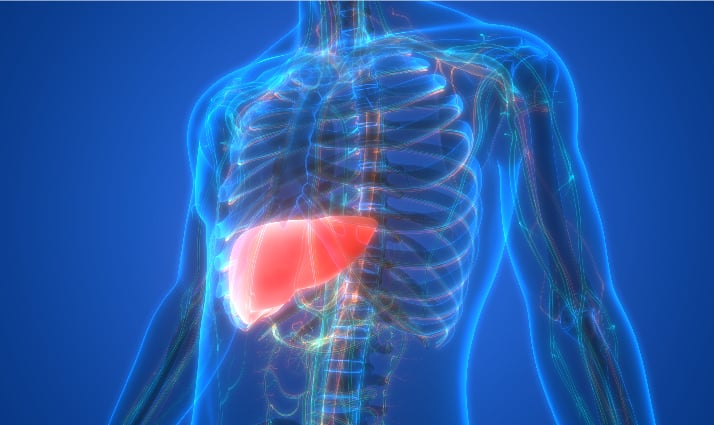Alagille Syndrome
July 24, 2019

What is Alagille Syndrome?
Alagille Syndrome is a congenital syndrome that usually affects the heart and the liver. Signs of it first show up in infancy or childhood. It is a rare condition, affecting one person in every 100,000. It destroys the bile duct progressively when it culminates into liver disease.
It also affects other organs of the body, such as the spine, kidneys, heart and eyes. Generally, children who have this syndrome have the same facial characteristics—wide-set eyes, sharp chin and broad brows. This condition is seen equally among boys and girls of all ethnicities.
Causes
Alagille Syndrome is a congenital disease that is inherited from one’s parents. If one parent has the gene mutation for this disease, the child has a 50 per cent chance of being born with it. They may not develop the syndrome’s symptoms, yet the child is said to suffer from this condition and has a 50 per cent chance of passing it on to his next generation.
Symptoms
Its symptoms vary from child to child and are more or less severe than others. The first sign of this condition is jaundice and poor growth of the child during the first few months after detection. For children over three months of age, the symptoms of Alagille Syndrome are:
- Severe body itch
- Continuous jaundice
- Fat deposits in the skin
- Dark urine
- White or grey stools
- Poor weight gain
- Poor body development
- Heart murmur
- Butterfly shaped bones in the spine
- Characteristic features: sharp chin, broad brow and wide-set eyes
As a child with this syndrome grows, he will exhibit the following complications:
- Diarrhoea
- Problems relating to blood vessels and heart
- Delayed puberty
- Liver failure
- Kidney disease
- Portal hypertension
- kidney disease
Diagnosis
Though difficult to diagnose because its symptoms resemble other types of liver disease, Alagille’s Syndrome can be identified due to several other features. The doctor will usually ask for blood tests, ultrasound and liver biopsy to be done. To know how much bile flows from the liver, a nuclear scan should be performed. In order to check the bile ducts and liver, surgery could also be performed.
Treatment
Alagille’s Syndrome has no cure but surgery is not an answer to manage its symptoms. The doctor’s main goal is to ensure that there are no complications of the disease. Since there is less bile flow in this condition, patients of Alagille’s Syndrome could easily develop fat-soluble vitamin deficiency. The solution to this is to have fat-soluble Vitamins A,D,E and K which help digest fat faster.
Medication is given to reduce the body itch and surgery is the answer if the heart needs to be surgically corrected. Liver transplantation is resorted to when the liver disease becomes chronic and cirrhosis sets in.
Why Rela Hospital
Advantages/Expertise
When a baby is diagnosed with a rare condition, it’s a matter of grave concern for the whole family. Few people know of Alagille Syndrome, which only makes it worse. But with the patient counselling team at Dr Rela Hospital, Chennai, all your problems are eased with our counsellor explaining the nuances of this syndrome to you. This makes acceptance of the child’s problem easier for the parents to bear while our expert surgeons play their role with confidence.
Parents of patients with these rare liver conditions need not worry because when they place their child in our care, we realize that it’s a huge responsibility and carry it out to perfection. Put this down to our team of expert liver surgeons who come to you with years of practice in foreign environments.
Plus, our hospital has been founded by a world-renowned liver specialist, Dr. Rela, under whose guidance the hospital functions. With so much going for your baby, the infant can only go home well again soon.
We have the reputation for being the best in Alagille Syndrome treatment in India because of our team of experts who keep abreast of techniques in this field. Add to that, our hospital is completely outfitted with the latest technology, equipment and trained nursing and support staff. These reasons make us the right choice for Paediatric liver transplantation in India, among other liver conditions.
And if you’re looking to be treated by the Best paediatric liver surgeon in Chennai, you’ll find him under our roof.
To know more about us and how we work, call us on +91 9384681770









